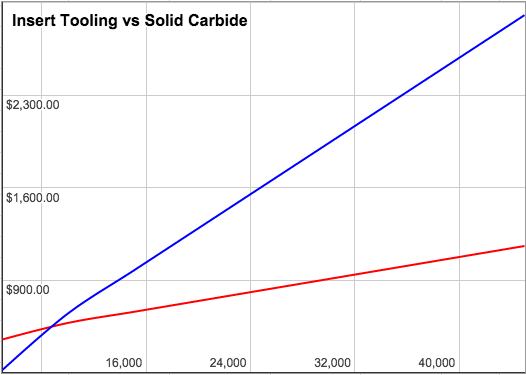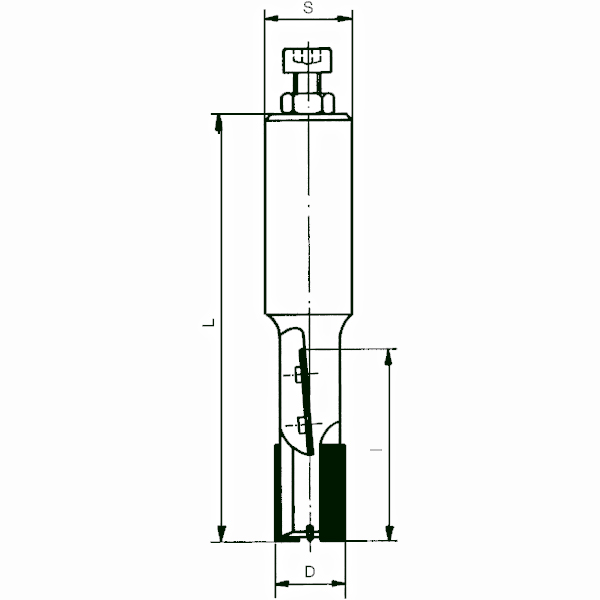Cost Comparison – Inserts vs. Solid Carbide Bits
We’ve had some interest around how the costs break down in our last post, “Increase Productivity with Insert Compression Router Tooling”. Here is an example using the same 6243 series (PN#6243.029.34 with insert#6243.295.00) two flute compression style insert router bit for comparison against a solid carbide two flute compression spiral (PN#6229.750.20M) to see how the costs stack up. As you can see from the following chart the breakeven payoff for using insert tooling comes at around 45K linear feet machined. The difference in tooling cost becomes more noticeable at around 100K linear feet machined where the cost of tooling is reduced by >50%!

If large diameter router bits (3/4″ +) is used in your cutting application, it’s important to assess the cost savings that can be achieved by using insert over solid carbide tooling. With solid carbide bits, you must continually purchase new tools as they can only be sharpened 2 or 3 times. In addition, often the tool life, after sharpening, is reduced to 70-80% of original tool life, due to decreased rake angles. Finally, after sharpening you need to compensate for the diameter change that occurred as a result of sharpening.

One of the biggest advantages of using carbide insert tooling is that you pay for the tool body one time and often get two cycles out of the same insert since the insert is often reversible. Keeping just a box of replacement inserts on hand saves tying up cash in spare tools on the shelf. The benefits of insert tooling, unfortunately, are not available for smaller diameter tools (such as 3/8 or 1/2″) as they cannot be constructed in 2 flute or shear design due to space limitations on the tool body. If you are interested in ways that you can reduce your total cost of tooling you can contact us now for more information. We also have a full service sharpening and insert grinding center with quick turn around times.
